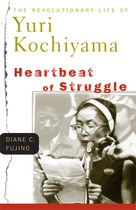NPR: Our Own People
 On March 5, 1965, LIFE Magazine published an article on the assassination of Malcolm X. The article was accompanied by a photo of Malcolm X lying on the floor—his white button-down shirt ripped open and stained red with blood—moments after the fatal shots were fired. In the photo is a woman kneeling on the ground, her hands holding up Malcolm's head, appearing to give him comfort in his dying moments. There is no mention of who the bespectacled woman is or her relation to Malcolm X in the article, but that woman remembered that tragic moment vividly. Her name is Yuri Kochiyama.
On March 5, 1965, LIFE Magazine published an article on the assassination of Malcolm X. The article was accompanied by a photo of Malcolm X lying on the floor—his white button-down shirt ripped open and stained red with blood—moments after the fatal shots were fired. In the photo is a woman kneeling on the ground, her hands holding up Malcolm's head, appearing to give him comfort in his dying moments. There is no mention of who the bespectacled woman is or her relation to Malcolm X in the article, but that woman remembered that tragic moment vividly. Her name is Yuri Kochiyama.
A Japanese American activist whose early political awakenings came while incarcerated in the concentration camps of World War II America, Kochiyama dedicated her life to social justice and liberation movements. As hate crimes against Asian American Pacific Islanders surge, Throughline reflects on Yuri Kochiyama's ideas around the Asian American struggle, and what solidarity and intersectionality can mean for all struggles.
Co-hosts Rund Abdelfatah and Ramtin Arablouei spoke to Diane Fujino, professor of Asian American studies at UC Santa Barbara and author of the book, Heartbeat of Struggle: The Revolutionary Life of Yuri Kochiyama. Fujino had the opportunity to interview Yuri Kochiyama multiple times for her biography. Below are highlights from a conversation with Fujino on the latest episode of Throughline. The conversation has been edited for length and clarity.
Segment on National Public Radio.